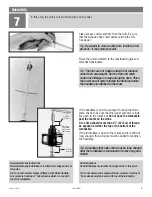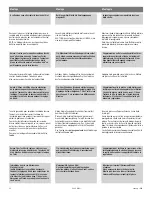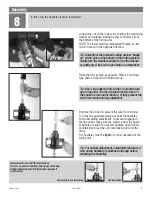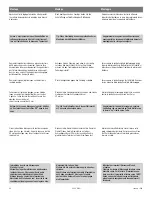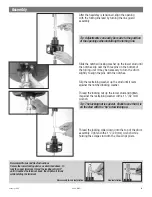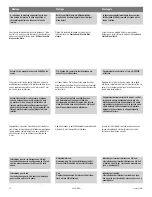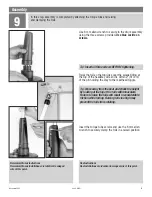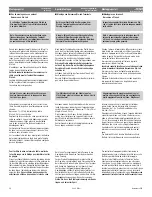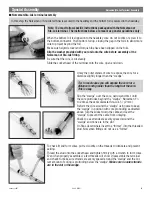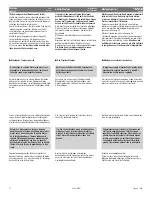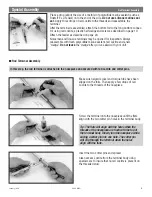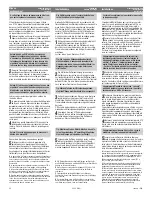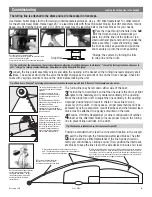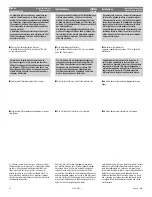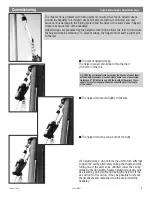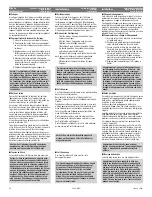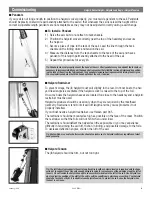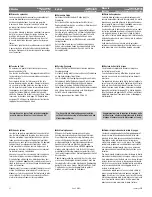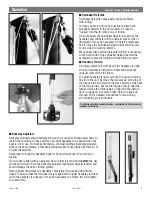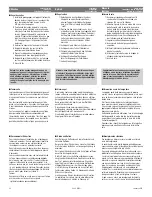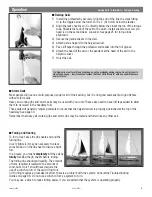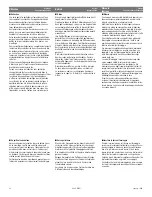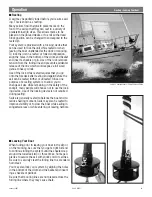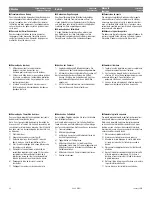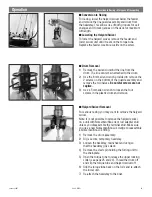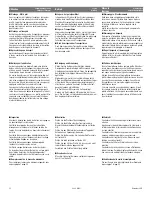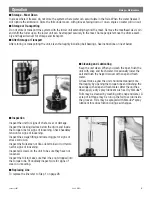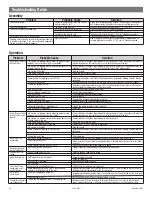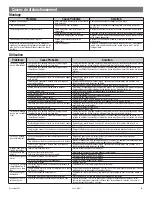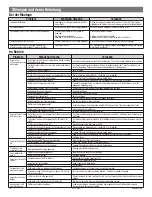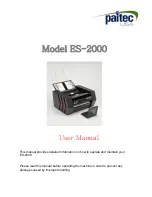
January 1999
Unit 2 MKIII
29
The most serious problem with furling systems occurs when the jib halyard wraps
around the headstay foil. Halyard wraps will prevent furling or unfurling and may
cause serious damage to the furling system and the halyard. In severe cases, halyard
wraps may cause loss of the headstay.
Halyard wraps are prevented by the halyard swivel which allows the foils to turn while
the halyard remains stationary. To prevent wraps, the halyard must exert a slight pull
to the rear.
■
To prevent halyard wraps:
The halyard swivel should be within the top 4"
(100 mm) of the foil.
Tip: With the sail raised, walk away from the boat and look at them-
asthead with binoculars. Use the halyard swivel as a measuremen-
treference. 4" (100 mm) is one half the length of the swivel. There
should be less foil exposed above the swivel than half the length
of the swivel.
■
The halyard must pull slightly to the rear.
If a halyard wraps, do not force the unit to turn. Attempt
to open the sail by alternately pulling the sheets and the
furling line. If the sail can be unfurled, lower the sail by
releasing the jib halyard. Severe halyard wraps can only
be cleared by going aloft and freeing the halyard. If the
sail will not furl or unfurl, it may be possible to remove
the jib sheets and manually wrap the sail around the
headstay.
■
The halyard must be snug but not too tight.
Commissioning
Halyard Swivel Height o Halyard Lead Angle

